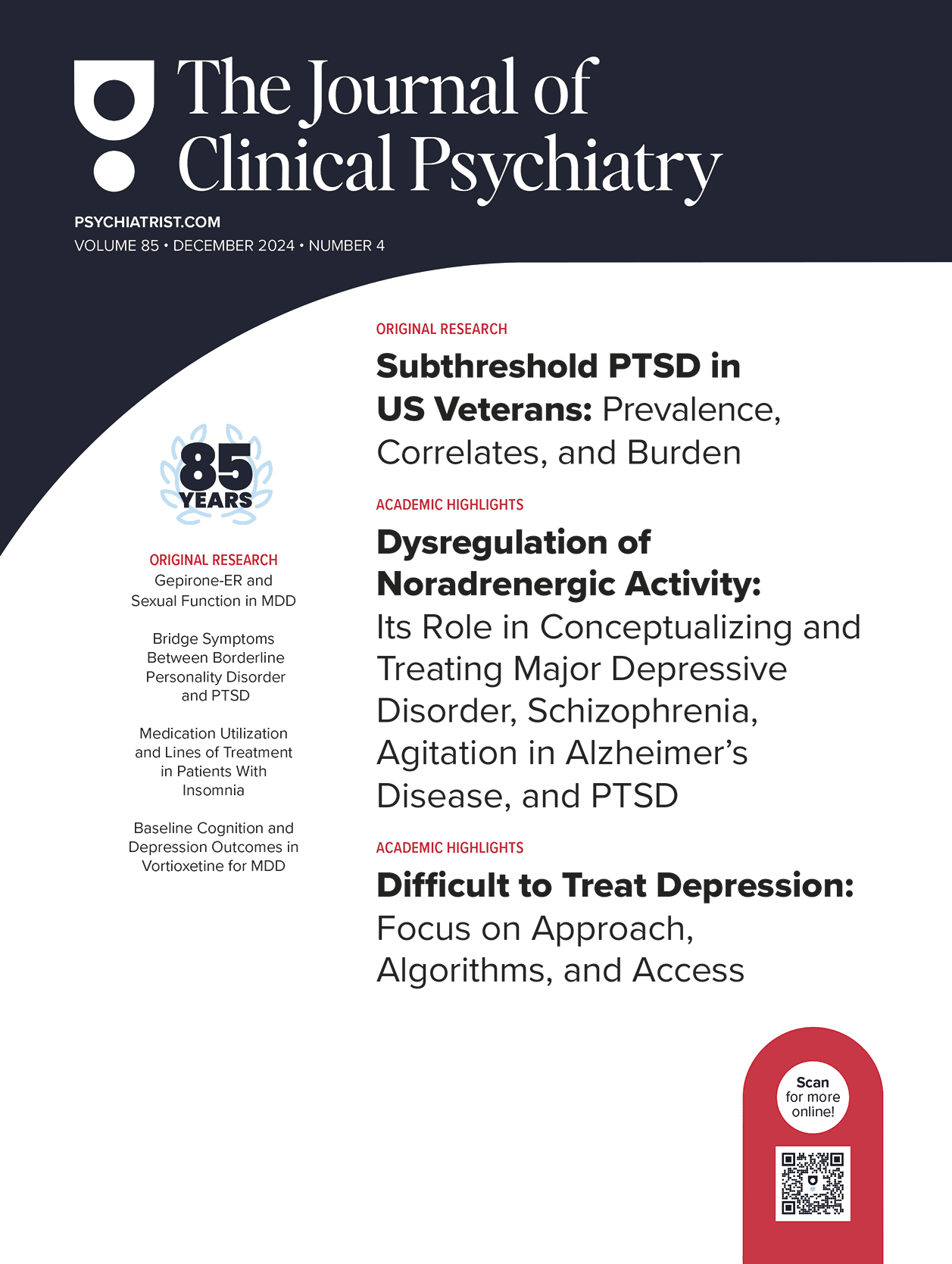Objective: Insomnia and objectively measured sleep disturbances predict poor treatment outcomes in patients with major depressive disorder (MDD). However, prior research has utilized individual clinical trials with relatively small sample sizes and has focused on insomnia symptoms or objective measures, but not both. The present study is a secondary analysis that examines the degree to which insomnia, objective sleep disturbances, or their combination predicts depression remission following pharmacotherapy and/or psychotherapy treatment.
Method: Participants were 711 depressed (DSM criteria) patients drawn from 6 clinical trials. Remission status, defined as a score of ≤ 7 on the Hamilton Depression Rating Scale (HDRS) over 2 consecutive months, served as the primary outcome. Insomnia was assessed via the 3 sleep items on the HDRS. Objectively measured short sleep duration (total sleep time ≤ 6 hours) and prolonged sleep latency (> 30 minutes) or wakefulness after sleep onset (> 30 minutes) were derived from in-laboratory polysomnographic sleep studies. Logistic regression predicted the odds of nonremission according to insomnia, each of the objective sleep disturbances, or their combination, after adjusting for age, sex, treatment modality, and baseline depressive symptoms.
Results: Prolonged sleep latency alone (OR = 3.53; 95% CI, 1.28-9.73) or in combination with insomnia (OR = 2.11; 95% CI, 1.13-3.95) predicted increased risk of nonremission. In addition, insomnia and sleep duration individually and in combination were each associated with a significantly increased risk of nonremission (P values < .05).
Conclusions: Findings suggest that objectively measured prolonged sleep latency and short sleep duration independently or in conjunction with insomnia are risk factors for poor depression treatment outcome.
J Clin Psychiatry 2012; 73(4): 478-485
© Copyright 2011 Physicians Postgraduate Press, Inc.
Continue Reading...
Did you know members enjoy unlimited free PDF downloads as part of their subscription? Subscribe today for instant access to this article and our entire library in your preferred format. Alternatively, you can purchase the PDF of this article individually.
Please sign in or purchase this PDF for $40.00.
Save
Cite
Already a member? Login




